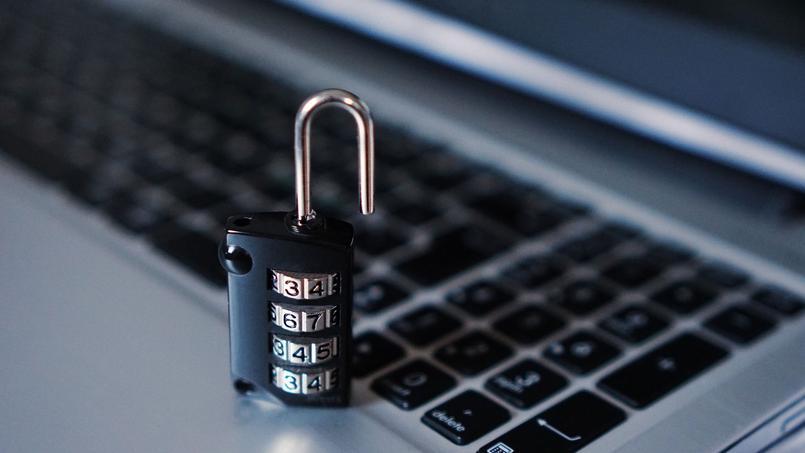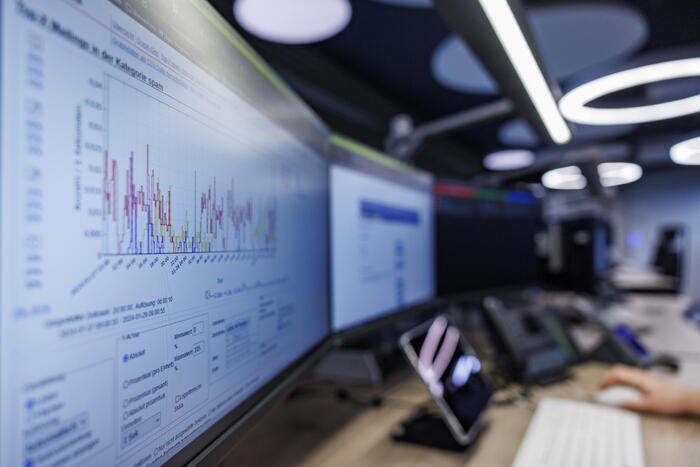The digital giants are transforming citizens into consumers, competing with State missions, and disrupting our lifestyles.
Director of cybersecurity strategy at Trend Micro, teacher at the National Police School (ENSP) and Sciences Po Saint-Germain, Nicolas Arpagian publishes
Frontières.com
with Éditions de l'Observatoire.
To discover
Find all the results of the legislative elections
LE FIGARO -. France is coming out of elections which have shown a high rate of abstention and the lack of interest of fellow citizens in politics. Beyond the responsibility of politicians, can we say that digital technology and democratic life do not go hand in hand?
Nicolas ARPAGIAN. -
Digital is not inherently good or bad.
It is what its users make of it.
Thus it can be a great tool for sharing knowledge, for valuing data that makes it possible to better understand complex phenomena and a place for debate open to as many people as possible.
But it is also a fertile ground for confinement in information bubbles and the possibility – without a professional journalistic filter – of disseminating remarks contrary to the objective truth.
This is the reason why the education and critical thinking of Internet-citizens remain the best protection against operations to destabilize public opinion via digital channels.
Are we heading towards an impoverishment of knowledge in the face of digital technology?
We are witnessing an evolution: in the past, lovers of books, music and films assembled in their libraries, discotheques and video libraries the titles which, by sedimentation, constituted their cultural and intellectual heritage.
Today, this culture is largely consumed by subscription to databases (Deezer, Netflix, Spotify, etc.) whose catalogs first value the number of works available and the algorithms shape access to these works, the multitude of which complicates often consumers' choices.
Having digitized access to all of the Louvre's collections is a great opportunity, but one that risks being limited to visits to the Mona Lisa, the Venus de Milo or the Victory of Samothrace if we do not arouse in the Internet user the desire to access new knowledge.
What do you see as the biggest threats? Both civilian and military?
Our academic, administrative, commercial, economic, financial, hospital, industrial and military organizations need digital to function.
The issues of availability, integrity and confidentiality of data and communication systems in the broad sense are crucial for the proper functioning of our national community.
Our expertise and our technological capacity must therefore ensure that we can count on full control of the technical equipment that irrigates the State, as well as the economic and social fabric.
The information plunder of a Europe whose prosperity is based on knowledge,
Do States have the means to fight against these threats?
There are no single solutions but a range of actions.
A legislative and regulatory framework is needed which lays down obligations in terms of digital security to protect companies, administrations and communities.
And thus reduce their exposure to risks.
This also involves strengthening cybersecurity training and the attractiveness of this sector to rely on a sufficient number of experts to innovate, deploy security devices and for our armed forces, to carry out offensive actions. in cyberspace.
Which of the democracies or democracies are better able to respond to these threats?
We see that all countries, regardless of their size and political model, have invested in defensive and offensive capabilities in the digital space.
With regard to campaigns to destabilize public opinion, democracies are in fact more fragile because, unlike authoritarian regimes which automatically filter online communications, freedom of expression benefits disinformation operations.
Whose publishing accounts are only suspended or closed once the manipulation is clearly established.
Is Europe off to a good start in this fight? What steps should she take?
The United States, Russia or China have domestic markets with homogeneous sizes and structures (law, language, culture, etc.) which have enabled them to bring out national companies of substantial size in the information technology sector. information.
While Europe is still too largely a territory of consumption of digital services designed and monetized outside its borders.
In terms of European cybersecurity, the national agencies concentrate most of the human, technical and financial resources.
This leads to favoring simple cooperation between the administrations of the Member States and not an integrated approach, with a European agency based in Greece, the European Agency for Network and Information Security (Enisa),
What can we say of France?
France has been, with Germany, very clearly on the initiative for several years to build the European legal framework in terms of cybersecurity: protection of personal data, specific requirements for Operators of essential services (OSE), responsibility of platforms ( DMA/DSA)… France must train more cybersecurity specialists and encourage more conversions of its technical expertise into business projects capable of becoming benchmark players in the sector on an international scale.
Finally, what are the benefits of digital technology for our societies?
Digital is a lever that allows the personalization of uses, the optimization of consumption by data modelling, the provision of services that are difficult to conceive in a purely physical world, a fluid circulation of knowledge and the sharing of activity on many large geographical areas.
It is therefore a hotbed of value creation, as long as its operating methods are understood and mastered by the greatest number.
Again, digital is only a tool and it is only the practice that is made of it that makes it beneficial or problematic.
We must not give in to technological utopia or other techno-solutionism, but conversely, not investigating the opportunities offered by digital technology would be tantamount to mortgaging our economic future,








